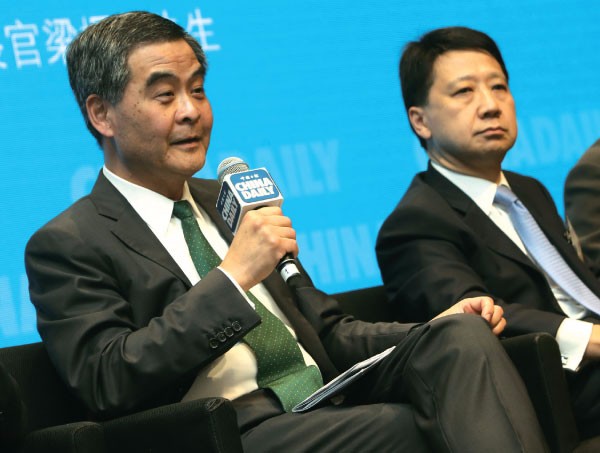2015-10-30
Zhou Mo

The “Belt and Road” initiative is expected to create a “big trickle-down effect” in regions along the routes, as demand for all sorts of goods and services from a wide spectrum of business will rise significantly, according to Y.K. Pang, chairman of the Hong Kong General Chamber of Commerce (HKGCC). The building industry will be the first to benefit from the vast opportunities arising from the initiative, raised by President Xi Jinping in 2013, Pang told China Daily in an exclusive interview on Thursday. Other services, involving the finance, accounting, legal and information-technology fields, will come around accordingly, he said. “As money is invested in those countries (along the ‘Belt and Road’), there’ll be plenty of demand for various things, for example, goods, supplies, retail services and even the need to entertain the people in those countries as their living conditions improve. There will be a big trickle-down effect because when money is invested in any location for any kind of business, it will spread across the whole society,” Pang said. Not only will big companies gain from the initiative, small and medium-sized enterprises (SMEs) are also set to benefit. The HKGCC chief reckons there’ll be a lot of design and technological work to do, citing the need to create new apps, portals and platforms. “These are things not only for large corporations, but also for SMEs.” Hong Kong SMEs will benefit too as money derived from infrastructure development will reach the pockets of ordinary citizens in those regions, thereby enhancing their consumption capability, Pang said. To better participate in the national strategy, Pang said the SAR needs to have a deeper understanding of the culture, geography and business environment of countries in the regions, and offer more training to Hong Kong people to help them adapt to and work in those economies. Hong Kong people may know markets on the Chinese mainland or in Singapore well enough, but as far as Cambodia, Vietnam or Sri Lanka are concerned, they do require better knowledge of them, Pang pointed out. “We need to understand how to fit in our efforts with the needs of markets in those areas. This is the only way for us to carry out the project successfully and make it a game-changing initiative.” Pang also called for greater cooperation with the mainland on various matters to reduce the risks associated with investments in the “Belt and Road” regions, such as how to work under different legal and accounting frameworks, the labor supply and the quality of labor for the projects involved. Source: http://www.chinadailyasia.com/2015-10/30/content_15337069.html